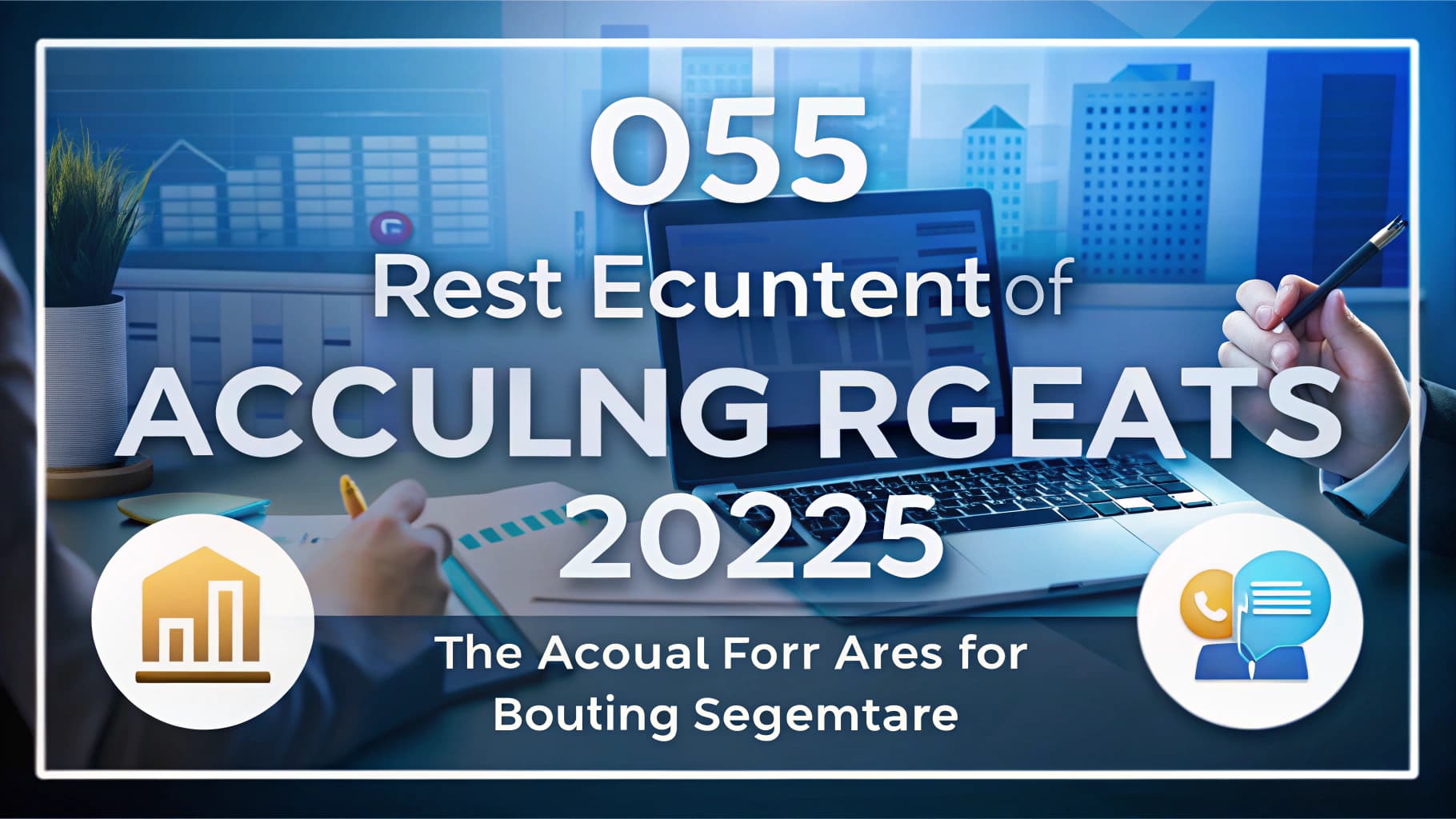Best Accounting Software for Real Estate Agents in 2025
Introduction
In the fast-paced world of real estate, efficient financial management is essential to success. Accounting software for real estate agents can streamline complex financial processes, manage budgets, and facilitate smooth transactions, ultimately leading to better business decisions. With a plethora of options available, it's crucial to choose the right software that caters specifically to real estate needs. In this post, we will explore some of the best accounting software solutions available in 2025 that are tailored for real estate agents.
Top Accounting Software Options
1. QuickBooks Online
- Features tailored for real estate: QuickBooks offers customizable invoicing, expense tracking, and tax deduction features designed for real estate transactions.
- Versatility and scalability: Suitable for agents, small firms, and larger companies alike, QuickBooks can easily scale as your business grows, making it a top choice for many real estate agents. With QuickBooks integration options available, managing your finances has never been easier! Learn more about QuickBooks Online here.
2. Zoho Books
- Pricing tiers and features: Zoho Books provides multiple pricing tiers to accommodate agents of all sizes. It includes features like automated workflows and thorough reporting.
- Document management and collaboration tools: The platform also allows agents to collaborate with clients seamlessly, ensuring transparency and efficiency in transactions.
3. FreshBooks
- Suitable for solo agents: FreshBooks is particularly beneficial for independent agents due to its user-friendly interface and straightforward invoicing processes.
- Invoicing and expense tracking features: With robust expense tracking, agents can easily manage costs associated with their transactions. Discover more about FreshBooks.
4. Xero
- Contact management tool: This software includes a comprehensive contact management system, which is essential for agents dealing with numerous clients and vendors.
- Mobile app functionality: Xero's user-friendly mobile app allows agents to manage finances on the go, ensuring they stay organized and responsive to clients' needs.
5. DoorLoop
- All-in-one software with QuickBooks integration: DoorLoop combines property management and accounting features, making it an excellent choice for agents managing rentals. Its seamless integration with QuickBooks adds added benefits for real estate agents.
- Property management features: This software effectively streamlines tenant communication, rent collection, and property tracking.
Specialized Real Estate Accounting Software
1. Propertybase
- CRM and marketing integration: Propertybase stands out by merging CRM capabilities with accounting features tailored for real estate, enhancing overall productivity.
- QuickBooks Online integration: This allows for straightforward synchronization between accounting and broader business management tasks.
2. Buildium
- Comprehensive property management features: Buildium offers extensive accounting capabilities while managing property details. It’s particularly suitable for property managers overseeing multiple listings.
3. AppFolio
- Strong accounting features for real estate: This software excels in financial tracking, making it easier for agents to monitor cash flow and manage budgets effectively.
Free and Budget-Friendly Options
1. Wave
- Free plan available: Wave offers a no-cost plan for independent agents, which includes basic accounting features such as invoicing and expense tracking.
- Basic accounting features for small businesses: While more limited, it’s a great starting point for new agents looking to manage their finances without an upfront investment.
2. TenantCloud
- Affordable plans for property management: TenantCloud offers competitive pricing, allowing real estate agents to manage properties and finances effectively without breaking the bank.
Factors to Consider When Choosing Software
When selecting the best accounting software for real estate agents, consider various essential factors:
- Scalability: Choose software that can grow with your business.
- Integration capabilities: Ensure it works well with other tools you use.
- Ease of use: A user-friendly interface saves time and training costs.
- Mobile accessibility: This is critical for agents frequently on the move.
- Reporting features: Look for robust reporting tools to gain better insights into your finances.
- Cost-effectiveness: Consider your budget and the value each solution brings.
Additional Tools to Enhance Real Estate Accounting
To maximize your accounting efficiency and streamline operations, consider integrating the following tools:
- BuzzSumo for content research helps you understand market trends and client needs better.
- Asana for project management allows for better collaboration among your team and helps keep projects on track and within budget.
Conclusion
Choosing the right accounting software for real estate agents can significantly impact your daily operations and long-term success. It is crucial to assess your specific needs and ensure the software aligns with your business goals. Try free trials whenever possible to ensure you find the best fit for your real estate practice. With the right tools, you’ll streamline your accounting processes and focus on what matters most—growing your business!
References
For more insights and comparisons on you can refer to the following resources:
- Best Real Estate Accounting Software - NerdWallet
- Best Real Estate Accounting Software: Free and Paid - Invedus
- Best Real Estate Accounting Software - FreshBooks
- Best Real Estate Accounting Software - Landlord Studio
Explore Related Topics
To enhance your knowledge about real estate accounting, check out these related posts: Best Real Estate Accounting Software Options in 2024, Why Real Estate Accounting Software Matters, The Importance of Real Estate Tax Software, Essential Guide to Real Estate Accounting Software, and Best Accounting Software for Real Estate in 2025.

